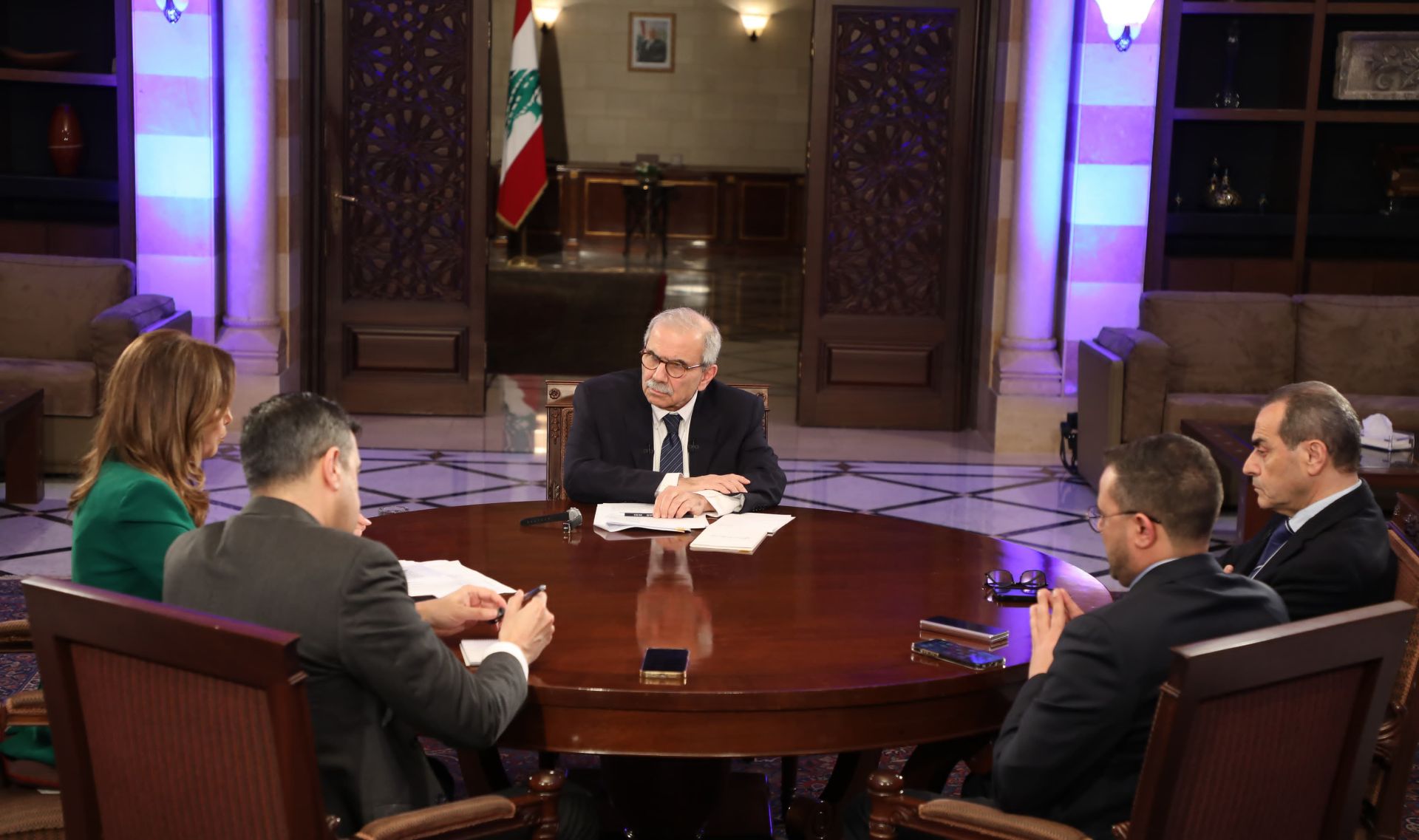
Like a leitmotif brandished at every turn of phrase, Prime Minister Nawaf Salam kept repeating, during an interview broadcasted Tuesday evening on several local TV channels, “We want to regain the trust of citizens!”
Acknowledging the extent of the suffering endured by the Lebanese as a result of the financial and economic crisis, the explosion in the port of Beirut, and the war between Israel and Hezbollah, Salam also highlighted other causes of disappointment, even despair, for the Lebanese, namely the decrepitude of public administration and the discrediting of the judiciary. These are all reasons that have prompted over 75% of young people to emigrate, according to statistics that Salam used to underline the intensity of the people's malaise and the seriousness of the situation.
Salam reviewed a number of practices that had cost Lebanon “opportunities” to realize its “turnaround” sooner. He referred in particular to the selective application of the Taef agreement, the failure to deploy the Lebanese army in southern Lebanon, and the failure to capitalize on the Syrian withdrawal.
In response to questions about the criteria for forming his government, the Prime Minister defended his commitment to the standards he had set himself, which took into account above all the criteria of competence and mastery of public policies, as well as the principle of the separation of legislative and executive powers. “We were not forming a miniature parliament,” he declared. Continuing in this vein, Salam asserted, “This is a founding government charged with setting the country on the path that leads to the consecration of the State.” He also “corrected” the concept of classifying ministerial portfolios into “sovereignist” and “non-sovereignist” categories, denying the veracity of the adage that “the Ministry of Finance is the responsibility of the Shiite community”.
With regard to the ministerial declaration, the Prime Minister affirmed that the text would respond to the challenges facing the country, these being the occupation of its territory by Israel and reconstruction, as well as fiscal, economic, and political reform.
Salam insisted, “The Israeli withdrawal must take place on schedule, if not before.” “State authority must extend, by its own means, over the whole territory.” “We are committed to rebuilding what has been destroyed, especially in southern Lebanon.” “No cancellation of bank deposits, but the cancellation of the idea of cancelling these deposits.” ‘Politicians must be prevented from interfering in the judicial system’ ... So many assertions were expressed to underline the new government's firm intention to accomplish the reforms that would, according to the Prime Minister, guarantee the influx of investments that would contribute to the country's reconstruction, but also to a renewed confidence in the State.
While stressing the importance of restoring Lebanon's relations with Arab countries —which would eventually contribute to the reconstruction process costing an estimated $11 billion— Salam nevertheless called on the Lebanese to “bet on each other” before anything else, alluding to the nINtereed to free themselves from all allegiances to outside powers.



Comments